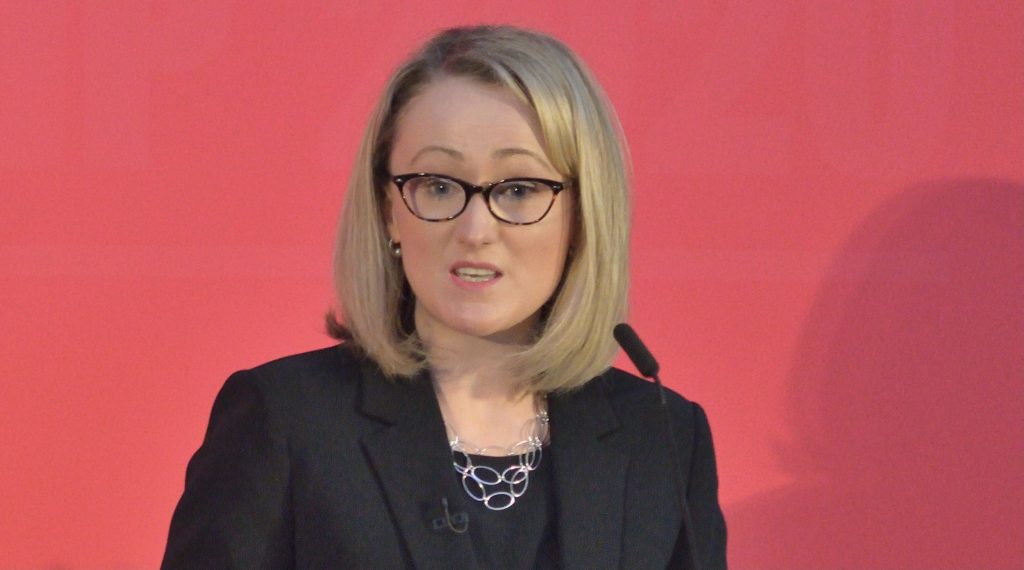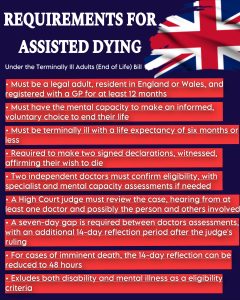
Salford MP Rebecca Long-Bailey has called for more safeguards in any ‘assisted dying’ legislation because of the pressures and burdens those wanting to end their life may feel.
All MPs face a difficult decision regarding new legislation that has been formally introduced in the House of Commons.
The Terminally Ill Adults (End of Life) Bill will make it an option for those who are terminally ill to request assistance to end their own life.
The Bill presented by Labour MP, Kim Leadbeater, is set to be debated and voted on in the House of Commons on Friday, November 29.
Prime Minister Keir Starmer will allow all Labour MPs to vote as they wish on the matter.
As part of the Bill, a doctor could still not administer a lethal substance but could prepare it, and there would also be no obligation on any doctor to take part in the process of ‘assisted’ dying.
The complex issue has highlighted differences in opinion among the public which is reflected in the position MPs are taking.
Salford MP Rebecca Long-Bailey, who opposed an earlier version of the legislation in 2015, believes the new proposals still do not provide enough protection for vulnerable, particularly elderly, people from being pressured into ending their life.
She said: “I am concerned that the Bill does not provide adequate safeguards and robust enough definitions to ensure people are protected from potential coercion and misdiagnosis.
“The Bill defines someone with a terminal illness as one who is ‘reasonably expected to die within six months’; I am concerned that experts’ opinions can often differ on what is terminal and upon life expectancy itself, and so the definition in the Bill is not robust enough.”
It will be illegal for any doctor, or anyone else to induce or coerce a patient to take the medication, and if someone is found guilty of such action, they could face up a 14-year prison sentence.

The Salford MP continued: “The Bill does not provide adequate guidelines and regulations for ensuring the person wanting to end their life is not doing so as a result of coercion or from a feeling that they are a burden to their families.
“A doctor can not reasonably be expected to identify this and there is also no requirement for a psychiatric assessment on every occasion, only when the assessing doctor has doubts about capacity.”
She added: “I feel strongly that these omissions leave considerable room for either abuse or the heartbreaking scenario where the person suffering has capacity but feels that they must protect their loved ones from the emotional and physical burden of their illness.”
The requirements for assisted dying have been outlined in the Bill, and the process includes several steps, as detailed below.
Rebecca Long-Bailey raised further concerns about the knock-on effect the legislation could have.
“I worry that the provision of quality palliative care would become even less of a priority than it already is,” she said.
“Our focus should be on investing and supporting improvements in the provision of palliative care and pain relief in order to ensure those with terminal illnesses feel they can die with dignity without taking their own life.
“I fear that many disabled and elderly people may be made to feel like they are a burden to their family and society at large.”
She continued: “In Washington State in the US, where assisted dying is legalised, 61% of those requesting to end their lives reported they felt a burden on their friends, family and care-givers.
“We would not want a similar situation to arise in Britain.”
Although the initial debate and vote on the bill are set for November 29, further debates and votes would be needed if it were to become a law.
The Salford MP said: “I have been resolute that people deserve dignity in dying, and each person nearing the end of their life should feel reassured and safe in the knowledge they will receive the very best care and be supported at that time to make it as peaceful and painless as possible.
“I cannot imagine the heartbreak faced by a person suffering and their loved ones when facing a terminal illness that causes unimaginable suffering and destroys any shred of dignity.
“I can completely understand why many would wish to have the right to choose how and when they pass on but I do not think that this Bill is an adequate answer to this pain and suffering.
“There is a real risk that this Bill could mark a shift in the way our society regards human life, particularly how we view people who are terminally ill, elderly, disabled or otherwise vulnerable.”
She continued: “As a matter of deeply held conscience I can not support the Bill when it comes to a vote.”
She will continue to monitor developments in this area closely ahead of the debate at the end of the month.
While Labour MP for Worsley and Eccles Michael Wheeler, elected earlier this year, is seeking opinions from his constituents on the matter.
PARLIAMENT: A reminder for my consultation on the Terminally Ill Adults (End of Life) Bill. I welcome all constituents’ views 👉 https://t.co/ptj7Ai3TDx pic.twitter.com/k4MwrEjnXJ
— Michael Wheeler MP (@MWheelerMP) November 2, 2024
In a post on X, Wheeler is encouraging constituents of Worsley and Eccles to fill in a form letting him know their thoughts on the issue.
The full details of the assisted dying bill can be accessed on the Parliament website here.














Recent Comments